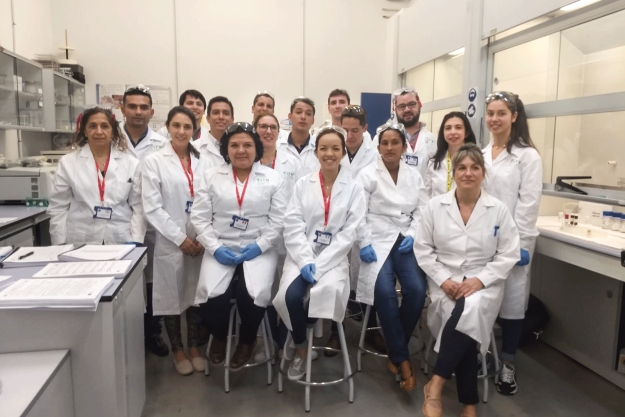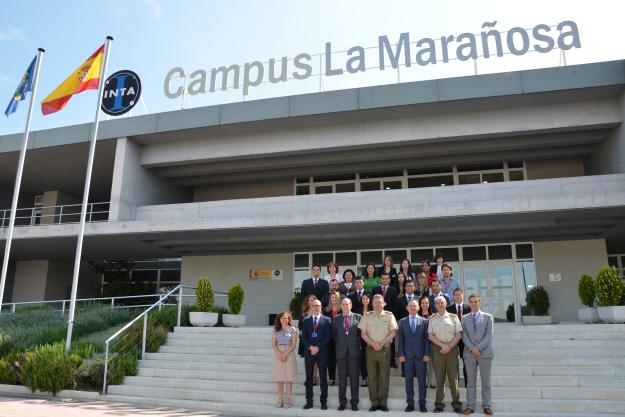
Analytical chemists from Latin America and the Caribbean during a analytical chemistry course in Madrid, Spain
THE HAGUE, Netherlands — 14 June 2019 — Analytical chemists from Latin America and the Caribbean (GRULAC) advanced their skills in the analysis of chemicals regulated by the Chemical Weapons Convention (CWC) during a course run by the Organisation for the Prohibition of Chemical Weapons (OPCW) in Madrid, Spain, from 3 – 14 June.
In his opening remarks to participants, Secretary General of the National Authority of Spain, Mr Fernando Borreda, reiterated the active role played by Spain in supporting different activities of the OPCW. He also highlighted the importance of the GRULAC courses and reaffirmed the intention of the Spain to continue its participation in this course and other future initiatives.
Senior OPCW Programme Officer, Mr Sergey Zinoviev, said the training would not only arm the participants with knowledge of cutting edge methodologies of chemical analysis, but would also be instrumental in building partnerships and promoting cooperation in the peaceful uses of chemistry in the region.
During the intensive two-week programme, 15 participants from 12 OPCW Member States from the GRULAC region mastered the theory and practice of advanced analytical techniques, sample preparation and interpretation of mass spectra of chemicals.
Attendees further learned about the maintenance of laboratory equipment, quality assurance systems in chemical analysis, and opportunities for chemists under the OPCW capacity building programmes.
The specialised training, held annually since 2010, was hosted by the Laboratory for the Verification of Chemical Weapons (LAVEMA) of the National Institute of Aerospace Technology (INTA). LAVEMA is a long-term member of the OPCW designated laboratory network.

Background
As the implementing body for the Chemical Weapons Convention, the OPCW, with its 193 Member States, oversees the global endeavour to permanently eliminate chemical weapons. Since the Convention’s entry into force in 1997, it is the most successful disarmament treaty eliminating an entire class of weapons of mass destruction.
97% of all chemical weapon stockpiles declared by possessor States have been destroyed under OPCW verification. For its extensive efforts in eliminating chemical weapons, the OPCW received the 2013 Nobel Peace Prize.
